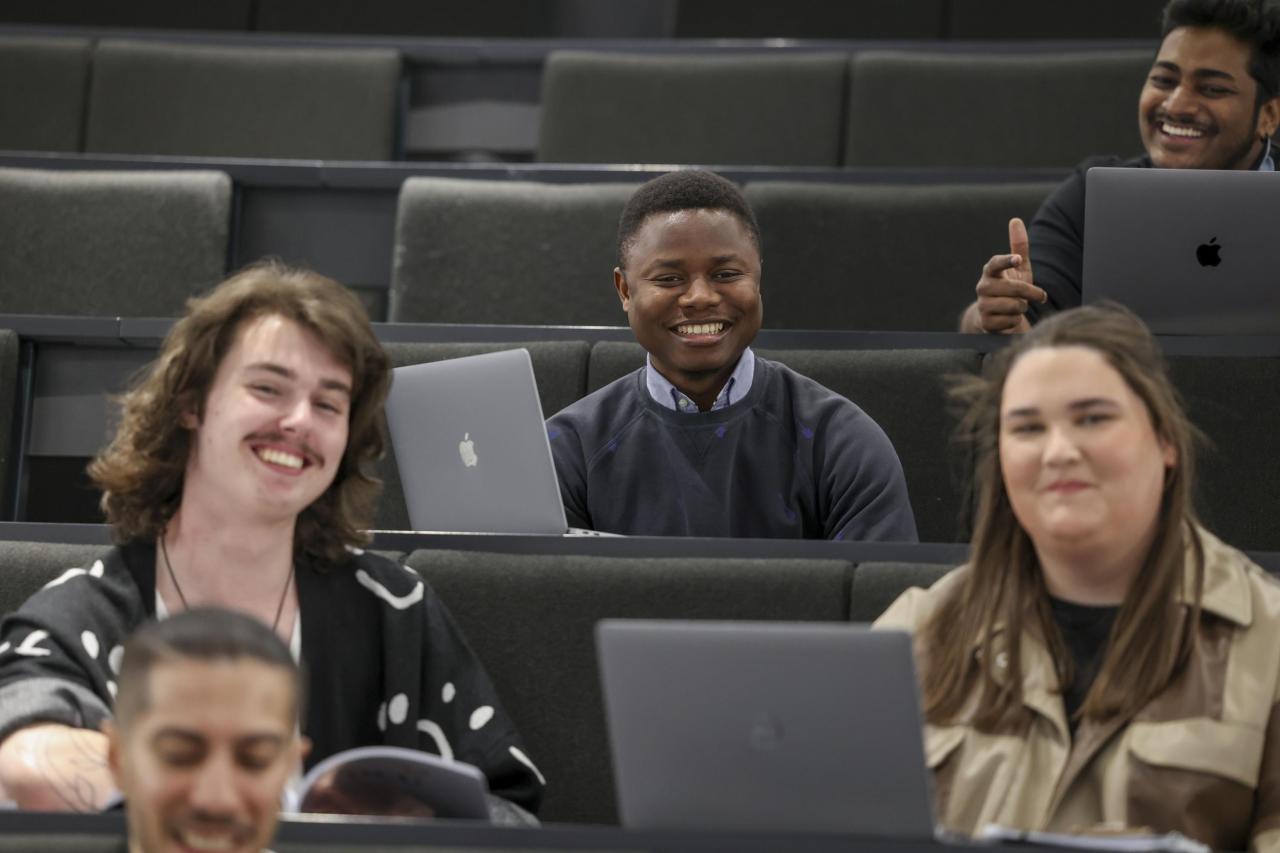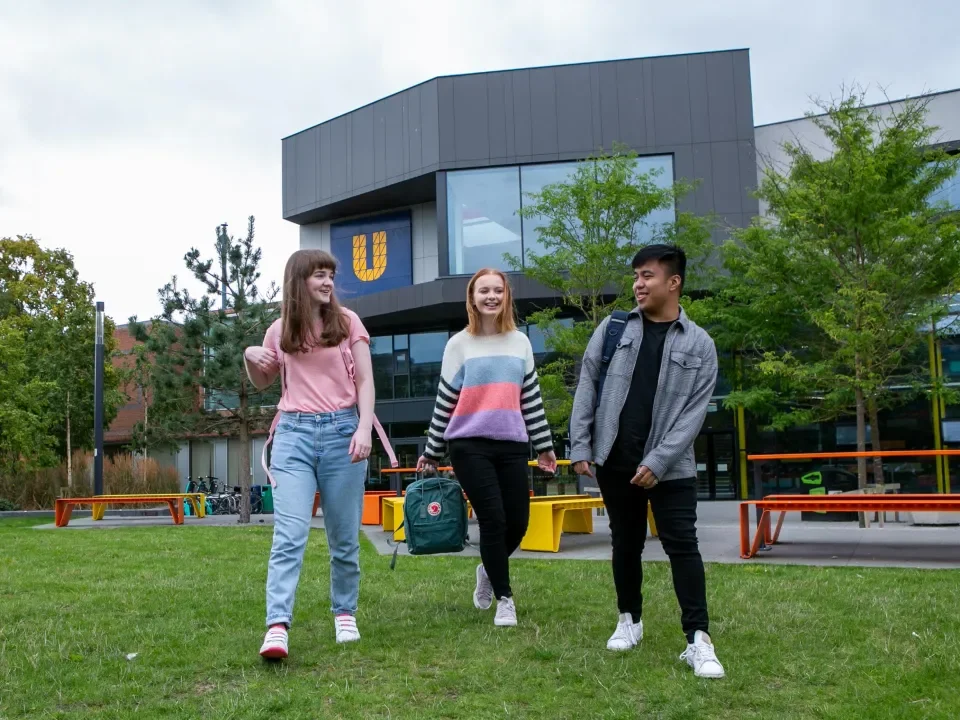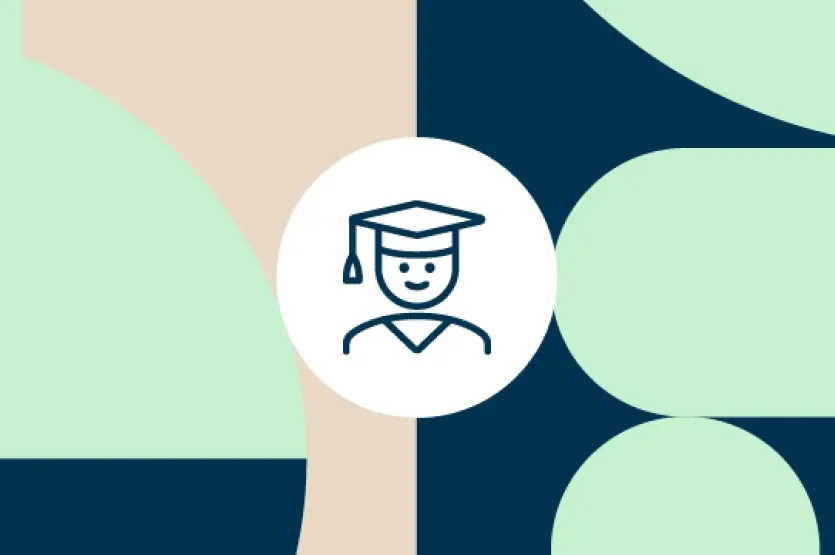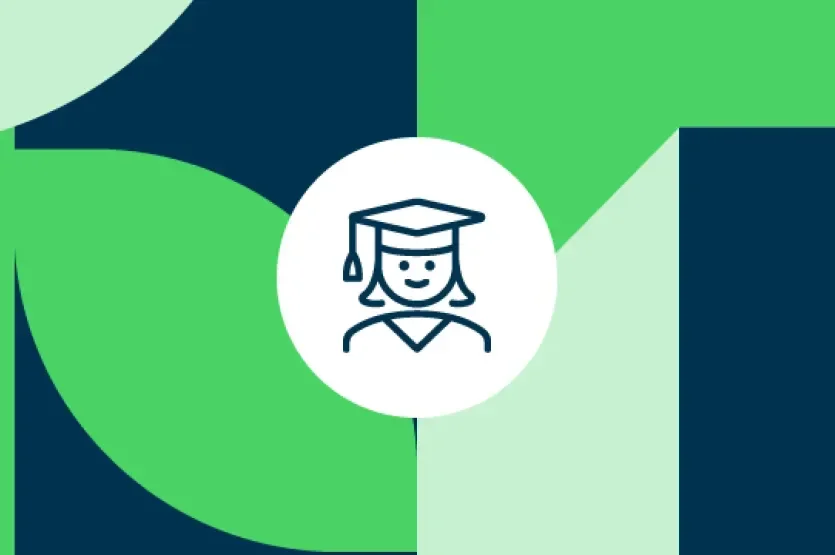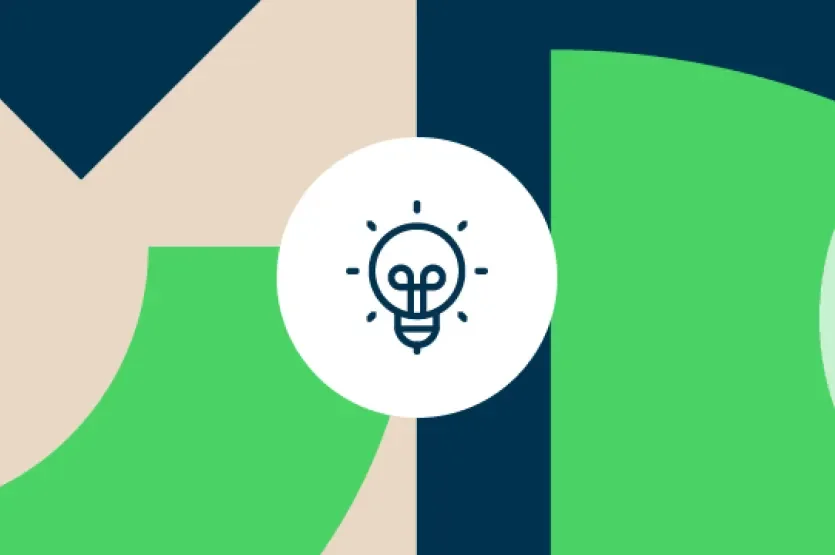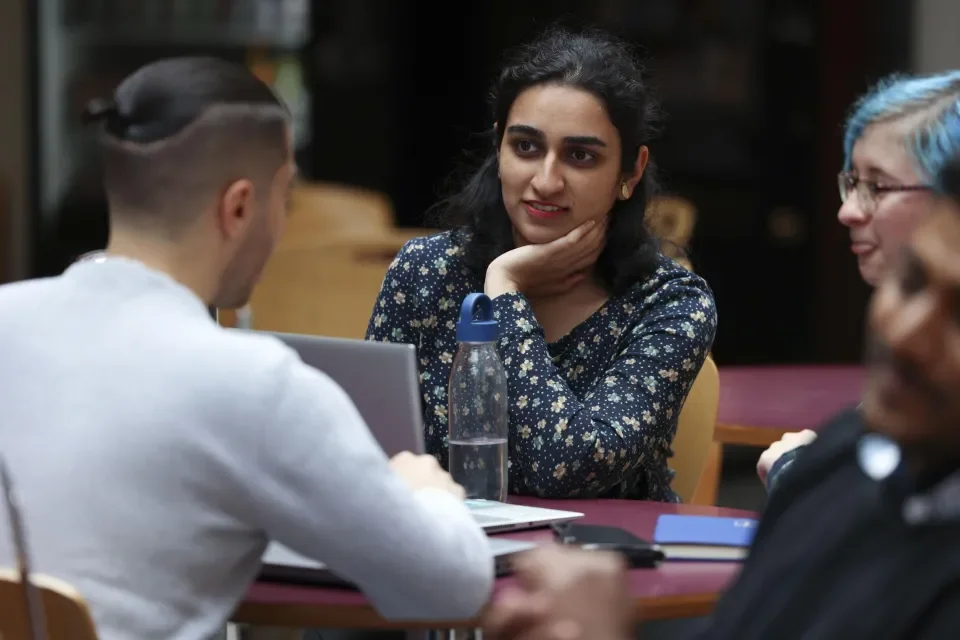Overview
Are you interested in working at the cutting edge of behaviour change and technology? Do you want to gain the collaborative and transferable skills you’ll need to move forward in a society driven by digital and technological innovation? This course enables you to study psychology and understand how disruptive technologies are fundamentally changing how we think, behave and live.
You’ll delve into development and lifespan psychology, biological psychology and neuropsychology, social psychology, cognitive psychology and the psychology of individual difference, along with gaining a detailed understanding of the disruptive technologies that significantly reshaping our world. You’ll also gain practical skills in programming languages such as R and Python, data visualisation and storytelling.
Helping shape and understand our future
During the course, you’ll develop a diverse set of transferable skills, including high-level digital innovation, problem-solving skills, advanced interpretation of data and human behaviour, an awareness of how to address the challenges posed by disruptive technologies and an understanding of how to build trust in digital interactions.
In third year, you’ll gain practical experience during your INTRA work placement, which could be in digital technology and learning, digital therapeutics, or other applied areas within psychology, education, health and wellbeing, industry and community sectors. Once you graduate, you could go on to train as a psychologist, undertake postgraduate studies or pursue a role as in data management or visualisation or as a behavioural scientist in fields such as telehealth and diagnostics, artificial intelligence and social robotics, mixed reality or human-technology interaction.
You can also apply to train professionally as a psychologist after successfully completing this degree, and the course is accredited by the Psychological Society of Ireland.
Why DCU
DCU People

I was lucky to be part of the first ever group to study on the newly created Psychology and Disruptive Technologies programme at DCU.
Read more about Mark Brady
Careers & Further Options
Careers
This programme will provide the skills, expertise and values for you to be able to work in a rapidly changing and diverse technological environment in behaviour change, mental wellbeing, health, enhancement and rehabilitation, and innovation.
You can also apply to train professionally as a psychologist after successfully completing this degree and this course is accredited by the Psychological Society of Ireland.
- Telehealth and Diagnostics
- Information Technology
- Healthcare
- Cognitive Science and Cognitive Technologies (Artificial Intelligence)
- Social Robotics
- Mixed Reality
- Human Technology Interaction (HTI)
- Education
DCU graduates are highly sought after by employers. Our Graduates work in environments ranging from large multinationals to SMEs, family businesses and start-ups across every sector.
DCU Careers Service has a number of learning and development initiatives in place for our students, giving them the skills they need for a successful career path.
Entry Requirements
General entry requirements and Programme Entry Requirements
In addition to the general entry requirements for admission to the university the following entry requirements apply
Minimum of O4 or H6 in Mathematics
In addition to the general entry requirements for admission to the university the following entry requirements apply
GCE A Level D or GCE AS Level C or GCSE C Mathematics
*** New QQI FET Route for entry September 2025 ***
Details of entry requirements per the CAO Alerts list, or available from mid November on cao.ie here
Mature Entry is a competitive process. Applicants must demonstrate:
- a genuine interest in the programme(s) they are applying for
- academic experience and competency in their chosen field of study
- an ability to engage and succeed on the programme
All applicants must complete a statement of interest to be considered for the mature application route.
For further guidance on the mature application process please see the CAO Website
Additional Criteria
This programme requires evidence of competency in Mathematics , which would equate to a O4/H6 or 5N1833 with distinction or 5N18396 with distinction or a pass in 5N0556 Maths for Stem in this subject. This requirement is essential for this programme. Applicants can show their strength in this through formal examinations e.g. school leaving examinations, QQI-FET, access programmes or other third level qualifications. If applicants don’t have any relevant examinations, they may be able to meet the requirements through their work and life experience, applicants must give examples of this experience to demonstrate their competency in these areas in their personal statement.
No Entry Path
International candidates are expected to have educational qualifications of a standard equivalent to those outlined above. In addition, where such candidates are non-native speakers of the English language they must satisfy the university of their competency in the English language. For further information on international applications click here.
Course Structure
- Introduction to Psychology
- Cognition
- Social Psychology
- Critical thinking, Enterprise and Collaboration Skills
- Research Skills 1
- Psychology of Disruptive Innovation
- Personality Psychology
- Data Visualisation and Science Communication
- Web Design
- Programming Fundamentals
- Child Development
- Biological Psychology
- Research Skills 2
- Psychological Measurement and Assessment
- Science, Technology and Society
- The Person, Ethics and Technology
- Behaviour Change and Technology
- Programming Fundamentals
- Developing Internet Applications
- Cognition across the lifespan
- Research Skills 3
- Lifespan
- Psychological Health, Difficulties and Disorders
- Digital Citizenship in the Community
- Advanced Web Design
- Topics in Innovative and Disruptive Technologies
- INTRA
- Psychology Research Project
- Social Psychology and Contemporary Issues
- Technology, Policy and Safety
- Neuropsychology
- eHealth, eWell-being and Digital Therapeutics
- E-Journal Club
- Introduction to Machine Learning
Electives in Psychology and Disruptive Technologies such as
- Computational Psychiatry
- Law, Cognitive Technologies and Robotics
- Advanced Psychometric Profiling
- Innovation, Disruption & Sustainability
With an elective choice from
- Programming Fundamentals
- High-Technology, Innovation and Entrepreneurship
- Business Database
Fees and Funding
Fees
How To Apply
Apply through the Central Applications Office (CAO) by 1st February or 1st May
To apply for this programme:
Candidates should apply directly here. Here's a quick step by step guide if you need help with your application.
Please provide
- Academic Transcripts for each and every year of study with English translation, if applicable.
- If applicable, provide evidence of competence in the English language as per DCU entry requirements.
Applications are accepted on an ongoing basis up to 1st July. All Non-EU candidates are advised to apply early, as places are limited.
All mature applicants apply through the CAO by 1st February. For further information and for special application procedures for mature students, please click here
No entry path
Please see Application Procedures or E-mail ugadmissions@dcu.ie.
Candidates submitting EU examination results are required to apply through the CAO at www.cao.ie.
Candidates submitting non-EU examination results are required to apply directly here.
Life On Campus
At DCU, our students can expect a unique campus experience. We are known for our excellent teaching and learning facilities, our active clubs and societies, and our great social and sporting facilities. All this makes DCU an exciting place to be.
DCU has three academic campuses; Glasnevin, St. Patrick’s and All Hallows (both in Drumcondra), all close to Dublin City centre.
They can be reached by public transport, Dublin Bus and Bus Éireann, with our Drumcondra campuses a ten minute walk from Drumcondra Train Station. Glasnevin is a 20 minute walk from St Patrick’s and All Hallows. They are also linked by Dublin Bus.
Each campus has a library (O’Reilly, Cregan and Woodlock Hall), study spaces, restaurants, and on-campus residencies. There are sports facilities on Glasnevin and St. Patrick’s, and there is a dedicated sports campus, St Claire’s, located near Glasnevin on the Ballymun Road.
DCU’s 19,000 students have access to exceptional teaching and learning facilities across our three academic campuses.
These include modern learning theatres, research centres, a new media and TV studio, radio/podcast studios, computer suites and advanced labs in the areas of Languages, Engineering, Physics, Chemistry and Biotechnology, as well as a Sports Performance centre and a training hospital ward. In 2021, we opened our first virtual reality ‘Leadership Lab’, which is located in our Business School.
We continue to improve and update our facilities. For example, construction of a new world-class STEM facility is underway on the Glasnevin campus. With capacity for an extra 3,000 STEM students, this facility will advance DCU’s international reputation for excellence in science and health, computing and engineering disciplines.
Studying in DCU isn’t just about course work. The university is rich in student life and activities.
There are more than 140 clubs and societies for students in DCU, with ‘Clubs & Socs’ days taking place on both the Glasnevin and Drumcondra campuses at the start of the academic year. They span everything from rugby to rock climbing, anime to jazz.
For many students, sport is an important part of the DCU experience. DCU’s Sports Complex boasts a 25 metre swimming pool, fitness centre gym, all-weather pitches and squash courts, as well as soccer, GAA and rugby pitches. DCU Dóchas Éireann, the university’s GAA club, is the largest third level Gaelic Games club in the country. Meanwhile, DCU Athletics has been Ireland’s highest achieving university club for many years. And DCU has dozens of other clubs to get involved in, from Archery to Weightlifting.
The Glasnevin campus is home to our purpose built, state-of-the-art student centre, The U, which serves the needs of a rapidly growing student body. Here, you will find the Student Leadership and Lifeskills Centre, performing arts and cultural spaces for students and the wider community, and the Entrepreneurship and Innovation Hub. Also located on our Glasnevin campus is The Helix, our renowned performing arts centre.
On our St Patrick’s campus, we have the Java Student Hub, a vibrant, warm and welcoming space where students can meet for coffee, play music, use the projector to watch events, or just relax. The walls of the Java Hub were designed based on the cultural history of St Patrick’s Campus, including the special references to the notable sporting history and history of the arts.
We have a number of academic, professional and social supports for students.
Student Advice & Learning Skills Centre - Offers a wide range of supports and services to students and advice
The Writing Centre - drop-in writing workshops for students through the academic year
Maths Learning Centre - provides maths support for students of all ability levels with maths modules
Student Learning - facilitate the transition from passive to active learning for students at DCU, by teaching study skills, nurturing critical thinking and building student confidence.
Careers work with students to help them on their professional journey into graduate employment.
Our student support team offers a comprehensive support programme, helping students make that all important transition into university life and focusing on building confidence and skills which are key to success at third level.

DCU Glasnevin Campus
FAQs
Is DCU all one campus?
DCU is a multi campus university - the Glasnevin, St Patrick's and All Hallows campuses. The St Patrick's campus is where the Education courses are taught and some of the subjects from the BA Joint Honours degree. There is a 20-25 minute walk between the campuses but there are buses and bikes available to go between them also.
Click here to see maps of all of our campuses
If I'm studying on the St Patrick's campus, can I use the library and sports centre on the Glasnevin campus?
Yes, all facilities such as sports and accommodation are open for all DCU students to avail of.
Are there libraries in DCU and if they have wifi and work stations?
We have a brand new state of the art four floor library on our St. Patrick's Campus which complements the existing library on the Glasnevin campus. There is free wifi, work stations as well as desktop computers.
Does DCU provide accommodation?
DCU does have on-campus accommodation for undergraduate and postgraduate students, and you can find out more and apply via the Accommodation Office webpage.

